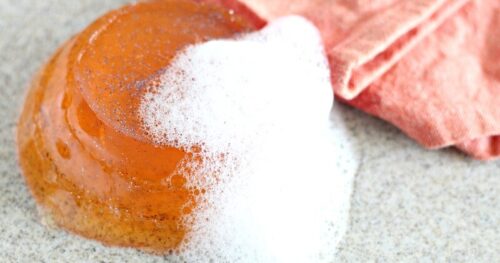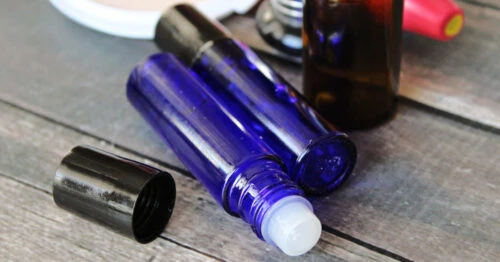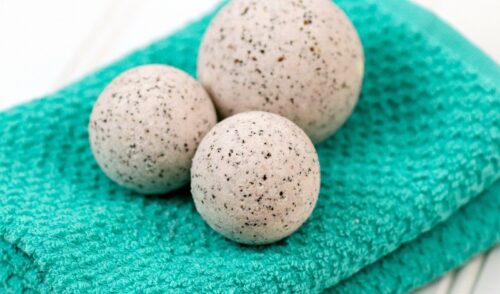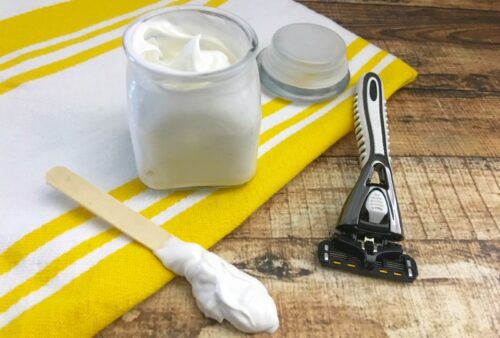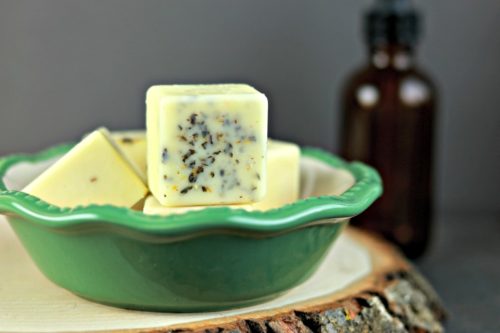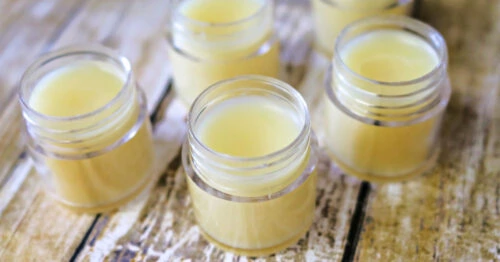In today’s world, consumers are becoming increasingly conscious of the ingredients in the beauty products they use. This has led to a growing interest in the subject of natural preservatives that can be used in cosmetics and homemade beauty products.
In this blog post, we will discuss the importance of natural preservatives, the different types of cosmetic preservatives, and which type of beauty products are best suited for their use.

Why Use Natural Preservatives?
Preservatives are essential ingredients in beauty products to prevent the growth of harmful bacteria, yeast and mold. Without preservatives, beauty products can quickly become contaminated and unsafe for use, leading to skin infections, irritation and other health hazards.
However, many synthetic preservatives commonly used in the beauty industry, such as parabens, phenoxyethanol and formaldehyde, have been associated with potential health risks, including endocrine disruption, cancer and skin irritation. As a result, consumers are now turning to natural preservatives as a safer alternative.
Are Natural Preservatives Safe and Effective?
There is a common misconception that natural preservatives are not as effective as their synthetic counterparts in preventing the microbial and bacterial growth in beauty products. However, research has shown that many natural preservatives are just as effective as their synthetic counterparts and, in some cases, even more effective.
In terms of safety, natural preservatives are generally considered to be safe for use in natural cosmetics and beauty products. However, it is important to note that not all natural preservatives are created equal, and some may be less effective or may cause allergic reactions in certain individuals. As with any ingredient, it is important to do your research and choose a natural preservative system from reputable sources that have been tested for safety and efficacy.
It is also worth noting that natural preservatives may not be suitable for all types of beauty products. For example, some natural preservatives may not be as effective in oil-based products or those with a long shelf life. In such cases, it may be necessary to use a combination of natural and synthetic preservatives to ensure the safety and stability of the product.
Types of Natural Preservatives

If you’re new to making homemade beauty products, you’ve probably wondered which natural preservatives are both safe and effective. I’ll explain the most widely used preservatives in the cosmetic industry, and whether each type of preservative is effective and safe.
While each of these ingredients in generally considered safe, it is important to use each of them in appropriate amounts and to test products before use to ensure their safety and efficacy for each individual person.
Essential Oils
Essential oils are a popular natural preservative option in beauty products. They have been shown to have some antimicrobial and antifungal properties, which makes them effective as natural preservatives for some personal care products. The effectiveness of an essential oil as a preservative depends on its composition, concentration and the specific microorganisms that it is intended to target.
Several essential oils have been studied for their effectiveness as natural preservatives, including tea tree oil, eucalyptus oil, cinnamon oil and clove oil. These oils have been found to inhibit the growth of various microorganisms and can be used in small amounts to extend the shelf life of some personal care products.
However, it is important to note that essential oils are not as effective as synthetic preservatives and may not be suitable for all personal care products. In particular, water-based ingredients (like aloe vera juice) are more susceptible to microbial growth and may require higher concentrations of preservatives than what the use of essential oils can provide.
Vitamin E
Vitamin E is a natural antioxidant that can help extend the shelf life of personal care products by preventing the oxidation of carrier oils in the products. As a result, it is often used as a natural preservative in oil-based products such as facial oils, body oils, and balms to preserve quality and prevent rancidity.
However, it is important to note that Vitamin E is not a broad-spectrum preservative, and it may not be effective against all microorganisms. It is particularly effective against the growth of bacteria and fungi that thrive in the presence of oxygen. This means that Vitamin E may not be effective in water-based products or in products that are exposed to air, such as toners and mists.
When using Vitamin E as a natural preservative, it is important to use it in appropriate amounts and to store the products in a cool, dry place to prevent oxidation. It is also important to note that while Vitamin E is generally considered safe, some individuals may be allergic to it and may experience skin irritation.
Grapefruit Seed Extract
Grapefruit seed oil has been marketed as a natural preservative for cosmetics and personal care products, but its effectiveness as a preservative is controversial. The controversy stems from the fact that many commercial grapefruit seed extracts on the market are not actually derived from grapefruit seeds.
Instead, they are made from other parts of the grapefruit or are made by mixing various chemicals together. Some of these commercial grapefruit seed extracts have been found to contain synthetic ingredients, such as triclosan, which is a controversial ingredient in itself.
That being said, there are some studies that suggest that grapefruit seed extract from natural sources may have some antimicrobial properties, which could make it an effective preservative. These studies have found that grapefruit seed extract is effective against certain strains of bacteria and fungi, and may be able to extend the shelf life of some personal care products.
However, it is important to note that the research on grapefruit seed extract as a preservative is still limited, and more studies are needed to determine its efficacy and safety. Additionally, if you do choose to use grapefruit seed extract as a preservative in your homemade personal care products, it is important to choose a high-quality, well-researched product, and to use it in the appropriate amounts to ensure that it is effective.
Propanediol
Propanediol is a natural solvent derived from corn sugar that has gained popularity in the personal care industry as an effective natural preservative. It can be used as a preservative in beauty products as it has antimicrobial properties and can also help to preserve the texture and stability of the products.
It is a multifunctional ingredient that has moisturizing and humectant properties, as well as antimicrobial properties that can help extend the shelf life of natural products. Propanediol has been shown to be effective against various microorganisms, including bacteria, yeast and mold.
Propanediol can be used as a sole preservative in some personal care products, particularly those that are pH-neutral and have a low water content, such as facial oils and body butters. In other products, it may be used in combination with other natural preservatives to provide broad-spectrum protection against microbial growth.
One of the advantages of Propanediol is that it is considered a natural ingredient and is compatible with natural and organic formulations. It is also non-irritating to the skin, making it a suitable choice for sensitive skin types.
Leucidal Liquid SF
Leucidal liquid SF, which is derived from fermented radish root, is a natural preservative that has gained popularity in the personal care industry. In my experience, it is one of the most effective natural preservatives, which is why I always have a bottle on hand.
It contains a peptide that can prevent the growth of bacteria, yeast and mold in beauty products. It is an effective preservative that is gentle on the skin and is commonly used in natural and organic beauty products.
Studies have shown that Leucidal Liquid is effective in inhibiting the growth of bacteria, yeast and mold in personal care products, making it a suitable alternative to synthetic preservatives. It has been found to be particularly effective in water-based products such as face creams, lotions and gels, and can also be used in hair care products and other personal care products.
One of the advantages of Leucidal Liquid is that it is considered a natural ingredient and is compatible with natural and organic formulations. It is also relatively mild and non-irritating to the skin, making it a suitable choice for sensitive skin types.
Potassium sorbate
Potassium sorbate is a salt that is derived from sorbic acid, which is found naturally in some fruits and vegetables. It is a popular natural preservative due to its efficacy, safety, and versatility.
Effective against a wide range of microorganisms, including bacteria and fungi, it’s often used in water-based products, such as lotions, shampoos and conditioners, to extend their shelf life. Potassium sorbate is often used in combination with other natural preservatives to provide broad-spectrum protection against microbial growth in skin care products.
It is generally considered safe and has been approved by regulatory agencies such as the FDA for use in food and cosmetic products. However, while potassium sorbate is generally well-tolerated by most individuals, it may cause skin irritation or allergic reactions in some people.
Sodium benzoate
Sodium benzoate is a salt that is derived from benzoic acid, which is found naturally in some fruits and berries. It is effective against bacteria and fungi and is often used in acidic products, such as shampoos, conditioners, facial toners and exfoliants.
Neem oil
Neem oil is a natural oil that is derived from the neem tree. Neem oil has some antimicrobial properties that make it effective as a natural preservative in beauty products. It has been shown to be effective against bacteria, fungi, and other microorganisms that can cause spoilage and contamination in personal care products.
It can be used in a variety of personal care products, including hair care and skincare products, particularly those intended for oily or acne-prone skin. However, it is important to note that neem oil may not be as effective as some synthetic preservatives, and it may not be suitable for all personal care products.
Additionally, some individuals may be allergic to neem oil and may experience skin irritation. It is also important to store products containing neem oil in a cool, dry place to prevent spoilage.
Citric acid
Citric acid is a weak organic acid that is found naturally in citrus fruits. Citric acid can be used in a variety of DIY beauty products, including facial toners, exfoliants, and other acidic products.
One of the advantages of citric acid as a natural preservative is that it also has antioxidant properties that can help extend the shelf life of personal care products. It can help prevent oxidation and the breakdown of other ingredients in the product, which can help to maintain the quality and effectiveness of the product over time.
Rosemary extract
Rosemary extract is a natural antioxidant that can help extend the shelf life of personal care products. It is often used in oil-based, anhydrous products, such as facial serums, balms and body oils, as it can help extend the shelf life by preventing the oxidation of oils in the products.
One of the advantages of using rosemary extract as a natural preservative is that it is a mild and non-irritating ingredient that is compatible with natural and organic formulations. However, it is important to note that rosemary extract may not be effective against all microorganisms and may not be suitable for all personal care products.
Benzyl alcohol
Benzyl alcohol is a preservative that can be either natural or synthetic. It is found naturally in some essential oils, such as jasmine, hyacinth, and ylang-ylang. However, the benzyl alcohol used as a preservative in personal care products is typically synthetic.
This chemical preservative is effective against bacteria and fungi and is often used in a variety of personal care products, including shampoos, conditioners, lotions and cosmetics. While benzyl alcohol can be effective as a preservative, there are some concerns about its safety.
It is a skin irritant and can cause allergic reactions in some individuals. It is also a solvent, which means it can potentially increase the skin’s absorption of other ingredients in the product.
If you are looking for natural preservatives for your homemade beauty products, there are many other options available that may be a better fit for your needs.
Salicylic acid
Salicylic acid is not a natural preservative, as it is a synthetic compound that is derived from salicin, which is found naturally in the bark of willow trees. It is a common ingredient in many skincare products and is often used to treat acne and other skin conditions.
While salicylic acid does have some antimicrobial properties, it is not typically used as a preservative in personal care products. It works by exfoliating the skin and unclogging pores, which can help to reduce the growth of bacteria and fungi that can cause acne and other skin problems.
If you are looking for natural preservatives for your homemade beauty products, there are many other options available that may be a better fit for your needs.
Best Broad Spectrum Preservatives
Sodium benzoate is often used in combination with other natural preservatives to provide broad-spectrum protection against microbial growth in personal care products. It is generally considered safe and has been approved by regulatory agencies such as the FDA for use in food and cosmetic products.
Of the natural preservatives discussed, potassium sorbate and sodium benzoate are generally considered to have the best broad-spectrum coverage against a wide range of microorganisms, including bacteria and fungi. These preservatives are often used in combination with other natural preservatives to provide a comprehensive approach to microbial control in personal care products.
Potassium sorbate is particularly effective in water-based products, such as lotions and shampoos, while sodium benzoate is often used in acidic products, such as hair conditioners and facial toners. Both preservatives have been extensively studied for their efficacy and safety and are approved by regulatory agencies such as the FDA for use in food and cosmetic products.
While there are other natural preservatives available that may be effective against certain types of microorganisms, potassium sorbate and sodium benzoate are generally considered to be among the most versatile and effective options for broad-spectrum microbial control in personal care products.
Where to Buy Natural Preservatives
The first place I look for my DIY beauty supplies is Mountain Rose Herbs. They are a great place to shop for natural preservatives in homemade beauty products because they offer a wide range of high-quality, organic, and sustainably sourced ingredients.
They also provide detailed information and resources on each of the natural ingredients they sell, including their safety, effectiveness and recommended usage. Additionally, they are committed to promoting ethical and environmentally responsible practices throughout their supply chain, making them a reliable and socially responsible source for natural preservatives.
If I can’t find it with them, I usually look on Amazon for the ingredients I need. I created a shopping list of natural preservatives to make it easy for you to find what you’re looking for there.
Conclusion
Natural preservatives are a safe and effective alternative to synthetic preservatives commonly used in the beauty industry. They can help extend the shelf life of beauty products while also providing added benefits for the skin.
Essential oils, vitamin E, grapefruit seed extract, propanediol and leucidal liquid are just a few examples of natural preservatives that can be used in beauty products. When choosing natural preservatives, it is important to consider the type of product and the specific properties of the preservative.
By using natural preservatives in cosmetics, consumers can make informed decisions about the products they use and promote a healthier, more sustainable beauty industry.

